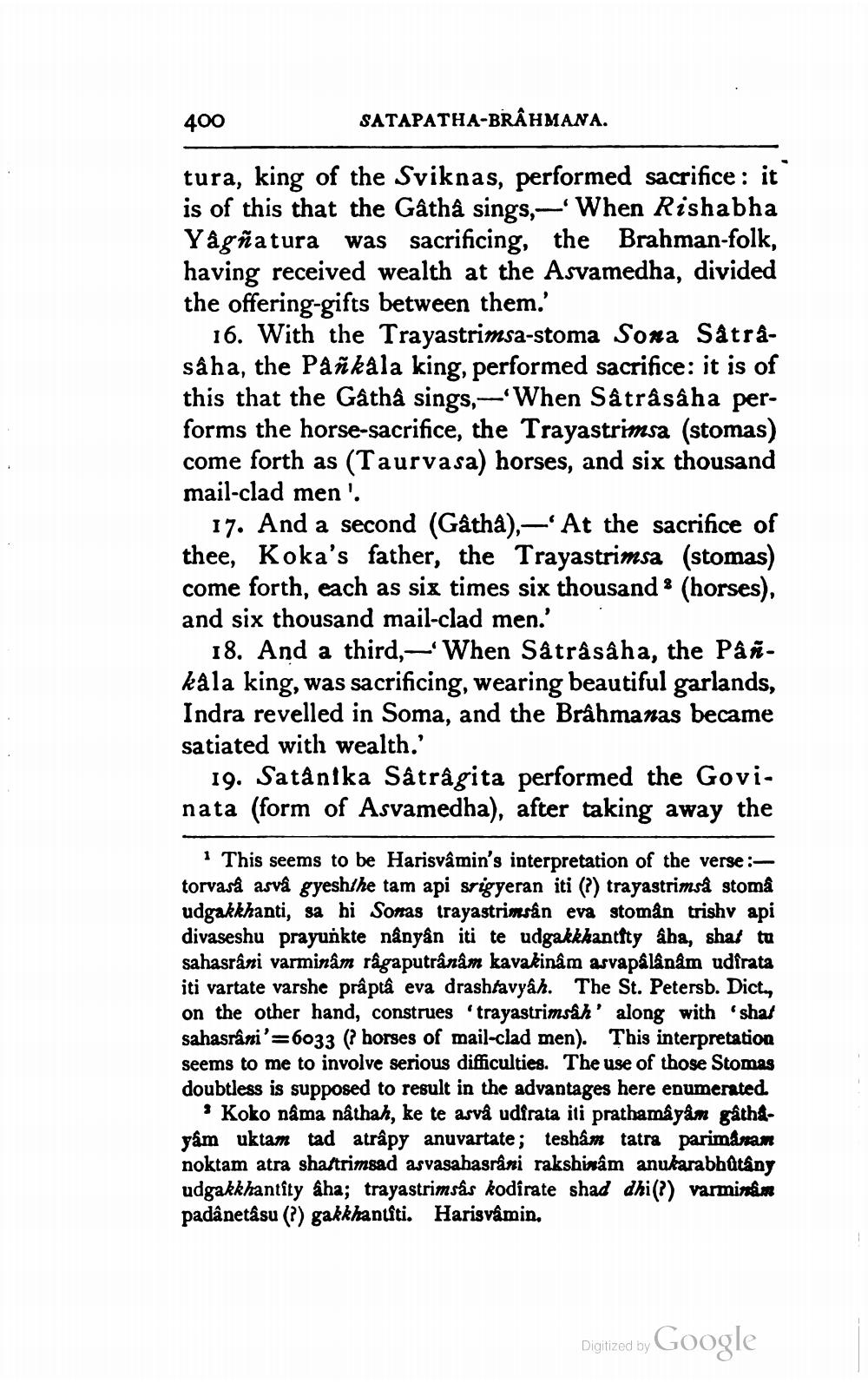________________
400
SATAPATHA-BRAHMANA.
tura, king of the Sviknas, performed sacrifice: it is of this that the Gâthâ sings,-'When Rishabha Yagñatura was sacrificing, the Brahman-folk, having received wealth at the Asvamedha, divided the offering-gifts between them.'
16. With the Trayastrimsa-stoma Soma Sâtrâsâha, the Pâñkâla king, performed sacrifice: it is of this that the Gâthâ sings,-'When Sâtrâsâha performs the horse-sacrifice, the Trayastrimsa (stomas) come forth as (Taurvasa) horses, and six thousand mail-clad men'.
17. And a second (Gâthâ),-'At the sacrifice of thee, Koka's father, the Trayastrimsa (stomas) come forth, each as six times six thousand (horses), and six thousand mail-clad men.'
2
18. And a third,-'When Sâtrâsâha, the Pâйkala king, was sacrificing, wearing beautiful garlands, Indra revelled in Soma, and the Brahmanas became satiated with wealth.'
19. Satânika Sâtrâgita performed the Govinata (form of Asvamedha), after taking away the
1 This seems to be Harisvâmin's interpretation of the verse:torvasâ asvâ gyesh/he tam api srigyeran iti (?) trayastrimsâ stomâ udgakkhanti, sa hi Sonas trayastrimsân eva stomân trishv api divaseshu prayunkte nânyân iti te udgakkkantfty âha, sha tu sahasrâni varminâm râgaputrânâm kavakinâm asvapâlânâm udîrata iti vartate varshe prâptâ eva drashtavyâh. The St. Petersb. Dict., on the other hand, construes 'trayastrimsâh' along with 'shaf sahasrâni'=6033 (? horses of mail-clad men). This interpretation seems to me to involve serious difficulties. The use of those Stomas doubtless is supposed to result in the advantages here enumerated.
Koko nâma nâthah, ke te asvâ udfrata iti prathamâyâm gâthâyâm uktam tad atrâpy anuvartate; teshâm tatra parimânam noktam atra shaftrimsad asvasahasrâni rakshinâm anukarabhûtâny udgakkhantity âha; trayastrimsâs kodirate shad dhi(?) varminâm padânetâsu (?) gakkhantiti. Harisvâmin.
Digitized by
Google




